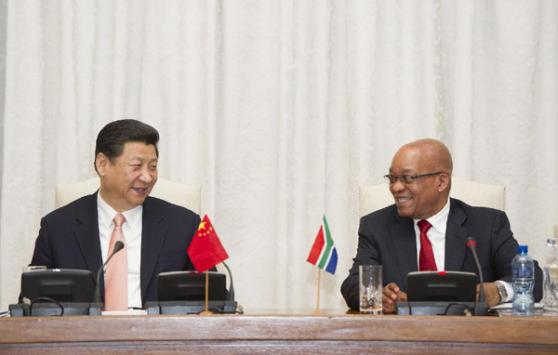
What role will the BRICS Contingency Reserve Arrangement (CRA) play compared to existing institutions such as the IMF? Will the BRICS develop lending paradigms that differ from those created by the Fund? Some say that the BRICS will avoid the conditionalities the IMF attaches to its loans. This could lead Western observers to accuse the BRICS of providing “rogue loans” and undermine the West’s attempts to promote good governance and financial stability.
Conditionality – i.e., giving financial assistance contingent on the implementation of specific economic and political policies – is one of the key elements of the IMF’s Articles of Agreement, which points out that the recommended policies should avoid “measures destructive of national or international prosperity”. Conditionalities assure that resources are made temporarily available “under adequate safeguards”. Due to threat of moral hazard, loan repayments would be at risk without conditions. Therefore, according to the IMF, such rules are crucial to secure the revolving character of the Fund’s resources, because they increase the likelihood of repayment.
The BRICS, several of whom have been recent recipients of IMF loans, have long criticized the application of conditionalities for a series of reasons, several of which have been articulated elsewhere as well. Not only do they undermine democracy and self-determination, but they are also a tool for the strong to dominate the weak, considering that politically weak countries often receive more stringent adjustment obligations. For example, there is plenty of evidence that European countries or countries close to the US obtain loans with far fewer strings attached. In the same way, loans provided to countries currently in the UN Security Council are usually less stringent. In addition, the BRICS allege that the IMF often prescribes the wrong dosage of austerity due to a lack of expertise and knowledge of the affected economies.
Supporters of conditionalities argue that it would be wrong to wholly depict policy conditionalities as a forced treatment for an unwilling patient. Recipient governments may in fact prefer some degree of conditionality in order to increase their domestic bargaining power against factions that oppose reform. The IMF-imposed sanctions are thus welcomed, and the institution is used as a ‘scapegoat’ in the domestic debate to push through necessary measures. In such a scenario, a recipient country could possibly prefer a conditionality-laden IMF loan over a BRICS Bank loan free of any policy prescriptions.
While this may be true in some instances, the argument that the IMF imposes conditionalities to maintain its own financial health is flawed. In a fascinating paper, (IMF conditionality: theory and evidence, Public Choice (2009) 141: 233–267) Dreher shows that the assumption that conditionality increases the likelihood of repayment has very little supporting evidence. Governments, he writes, almost always repay loans eventually, irrespective of whether they implement the recommended policies or not. More worryingly, accepting an IMF loan and its policy prescriptions fails to put a country on the ‘right track’: The probability of future IMF programs is thus not decreasing, but increasing with current IMF programs.
The World Bank agrees with the critique of conditionality and has reformed its structural adjustment lending. Instead of lending under the Structural Adjustment Facility, the World Bank now supports countries’ own programs—without detailed conditions. In a similar way, IMF has eliminated much of the conditionality from its programs, providing conditionality-free loans that are disbursed in single payments under the new ‘Flexible Credit Line’.
Since the BRICS Contingency Reserve Arrangement (CRA) is, for now, only meant to function amongst the BRICS (and not, like the IMF, for a large number of countries), direct comparisons between the two are of course difficult. Yet regarding the guiding principles of the CRA, the findings mean that it could impose far fewer conditionalities without increasing the chance of recipient governments defaulting on loans. From the perspective of BRICS governments, providing conditionality-free loans also seems like an attractive option as it align with the norms and rules that have guided the BRICS countries’ individual strategies. Among them is the focus on mutual benefits without the attachments of policy conditionalities in governance, economic policy or institutional reform.
Read also:
South-South cooperation: Towards a new paradigm?
BRICS Development Bank: Patience required
The politics of the BRICS Contingency Reserve Arrangement (CRA)
How long can the United States hold back IMF reform?
Photo credit: Huang Jingwen/Xinhua








